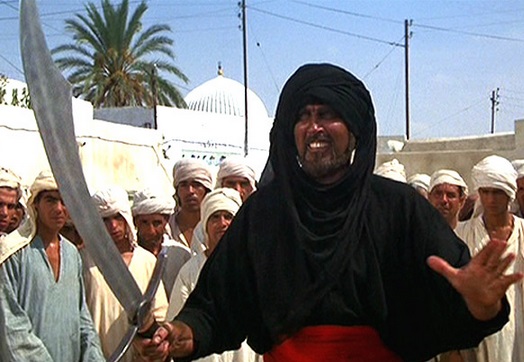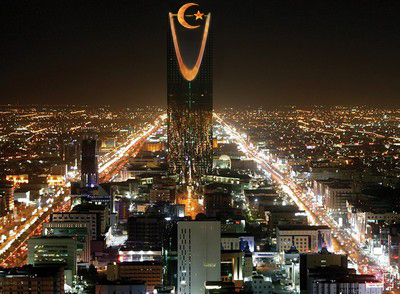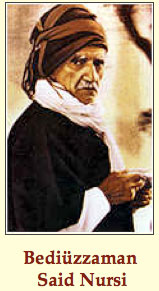  |
 |
 |
 |
|
MahdiWatch.org
|
 |
|
Home | About Me | Links to My Articles | Info on My Books | Contact Me
|
 |
|
Welcome to MahdiWatch.org! NEWSFLASH! COMMENTS LINK
BELOW EACH POST IS ENABLED! FEEL FREE TO BURY ME, PRAISE ME--OR JUST ISSUE A PERSONAL FATWA!
al-Mahdi is "the rightly-guided one" who, according to Islamic Hadiths (traditions),
will come before the end of time to make the entire world Muslim. Over the last 1400 years numerous claimants to the
mantle of the Mahdi have arisen in both Shi`i and Sunni circles. Modern belief in the coming of the Mahdi has
manifested most famously in the 1979 al-`Utaybi uprising of Sa`udi Arabia, and more recently in the ongoing
Mahdist movements (some violent) in Iraq, as well as in the frequently-expressed public prayers of former Iranian
President Ahmadinezhad bidding the Mahdi to return and, in the larger Sunni Islamic world, by claims that Usamah bin Ladin
might be the (occulted) Mahdi. Now in 2014 Mahdism is active in Syria, as the jihadist opposition group Jabhat al-Nusra
claims to be fighting to prepare the way for his coming; and in the new "Islamic State/caliphate" spanning
Syrian and Iraqi territory, as its leadership promotes the upcoming apocalyptic battle with the West at Dabiq, Syria. This site will track such Mahdi-related movements, aspirations, propaganda and beliefs in both Sunni and Shi`i
milieus, as well as other Muslim eschatological yearnings.
For a primer
on Mahdism, see my 2005 article, "What's Worse than Violent Jihadists?," at the History News Network: http://hnn.us/articles/13146.html; for more in-depth info, see the links here to my other writings, including my book on Mahdism.
|
|
|
|
Monday, May 28, 2012
Barad-dur Has Been Discovered--in Saudi Arabia!

Turns out that while it may indeed be rather difficult to simply walk into into Mordor, you can fly there (and not
only by eagle). Just inform your travel agent you want to fly over the impassable labyrinth of razor-sharp
rocks and burning desert sands, then take a taxi to the Burj al-Mamlakah, Saudi Arabia's own Dark Tower. Who knows?
You might be escorted up to the top floor by the Mouth of the Mahdi himself. Just remember that, afterwards, you can
check out, but you can never leave.
Saturday, May 12, 2012
Gülen Charter Schools: Will "60 Minutes" Examine their Mahdist Roots?
This coming Sunday night (May 13, 2012), the American news program "60 Minutes" will air a segment on the reclusive Turkish millionaire and neo-Sufi leader Fethullah Gülen, who is not only deemed by many to be the é minence
grise behind the ruling Ottoman-lite AK party in Turkey but perhaps more importantly (and dangerously) is the founder
and leader of a global school system that operates dozens (at least) charter schools in the United States. As I pointed
out two years ago in an analytical piece from my (now-defunct) History News Network blog, Gülen almost certainly
considers himself "a," if not "the," Mahdi--a topic which I doubt CBS' Leslie Stahl will broach in
her report, however: Much virtual ink has been spilled, recently,
about the global Islamic movement headed by the Turkish expatriate Fethullah Gülen (who, two years ago, was ranked the
world’s #1 public intellectual). Many analyses are positive, whether intensely or mildly so; others , on the contrary,
portray Gülenists as crypto-Islamists threatening not just Turkey but the
United States. I’m still forming my opinion of this movement, but at
this juncture I tend to side with those who see the Gülenists as neo-Ottoman Sufis (or perhaps neo-Sufi Ottomans?) rather
than as Muslim Brothers with moustaches. One important aspect of Gülenist ideology that often gets missed by commentators
is its sub rosa, “soft” Mahdism, which derives from Fethullah Gülen’s own personal adherence to the
teachings of Bediüzzaman Said Nursi (d. 1960) as elucidated by Zeki Saritoprak. Nursi was a late Ottoman/early Turkish
Republic Islamic thinker and writer who was heavily influenced by Turkish Sufism. And Sufism, with its mystical and charismatic proclivities, has always been
quite susceptible to Mahdist trends—Nursi’s Sufi leanings being no exception. He did, however, differ with traditional
Sunni Mahdist thought on some levels: for example, according to Saritoprak, “we may say…that in Bediüzzaman’s
view every age has its Mahdi,” from which “it is understood…that the Mahdi is not an individual.”
Most importantly, “he [Nursi] does not consider the Mahdi to be someone who will set everything in order…with
the sword. He sees him [the Mahdi] as a normal human being and great reformer” who will “revive the Sunna of God’s
Messenger” and whose “service will become increasingly brilliant until the start of the 16th century of the Hijra, following which an evil movement
will gain dominance.” But Nursi’s thought seems to exhibit some cognitive dissonance on the topic of the Mahdi:
while in some writings he stresses the non-individual concept of the Mahdi as almost a Star Wars-like “force”
rather than a person, in other places Nursi does admit that “the Great Mahdi expected at the end of time is the last
of the Mahdis and reformers.”
Observations:
1)Nursi’s/Gülen’s pacific Mahdism is a welcome break from the normal martial messianic view of the
Mahdi espoused in many Sunni, and some Shi`i, sources (and embodied by any number of self-styled Mahdis over the last millennium
of Islamic history); however….
2)This same view of the Mahdi as an apolitical mujaddid, “reformer,” who exists in every age also allows
for relative ease in donning the mantle of the Mahdi by a sufficiently self-assured, pious and charismatic Muslim leader—as
may very well be the case with Fethullah Gülen himself, or with another prominent, Nursi-influenced Turkish Mahdist,
Adnan Oktar (whom I interviewed
, in Istanbul, in 2008).
3) The 16th Islamic century begins in 2076 AD. Thus, Said Nursi and, presumably, his disciple Gülen both see
the first three-quarters of the 21st century as a period of increasing Mahdist, and almost certainly Turkish, influence. Will
the Mahdi restore the Ottoman caliphate before the American tricentennial?
4)Someone, somehow, needs to ascertain the extent
to which neo-Ottoman Nursian Mahdism influences the ruling AK Party in Turkey. It may be that Turkey’s soft Mahdism
proves more problematic to the West, in the long run, than Iran’s harder version.

|
|
|
|
| Jamkaran Mosque near Qom, Iran (during my trip there Aug. 2008) |
|
|
|
